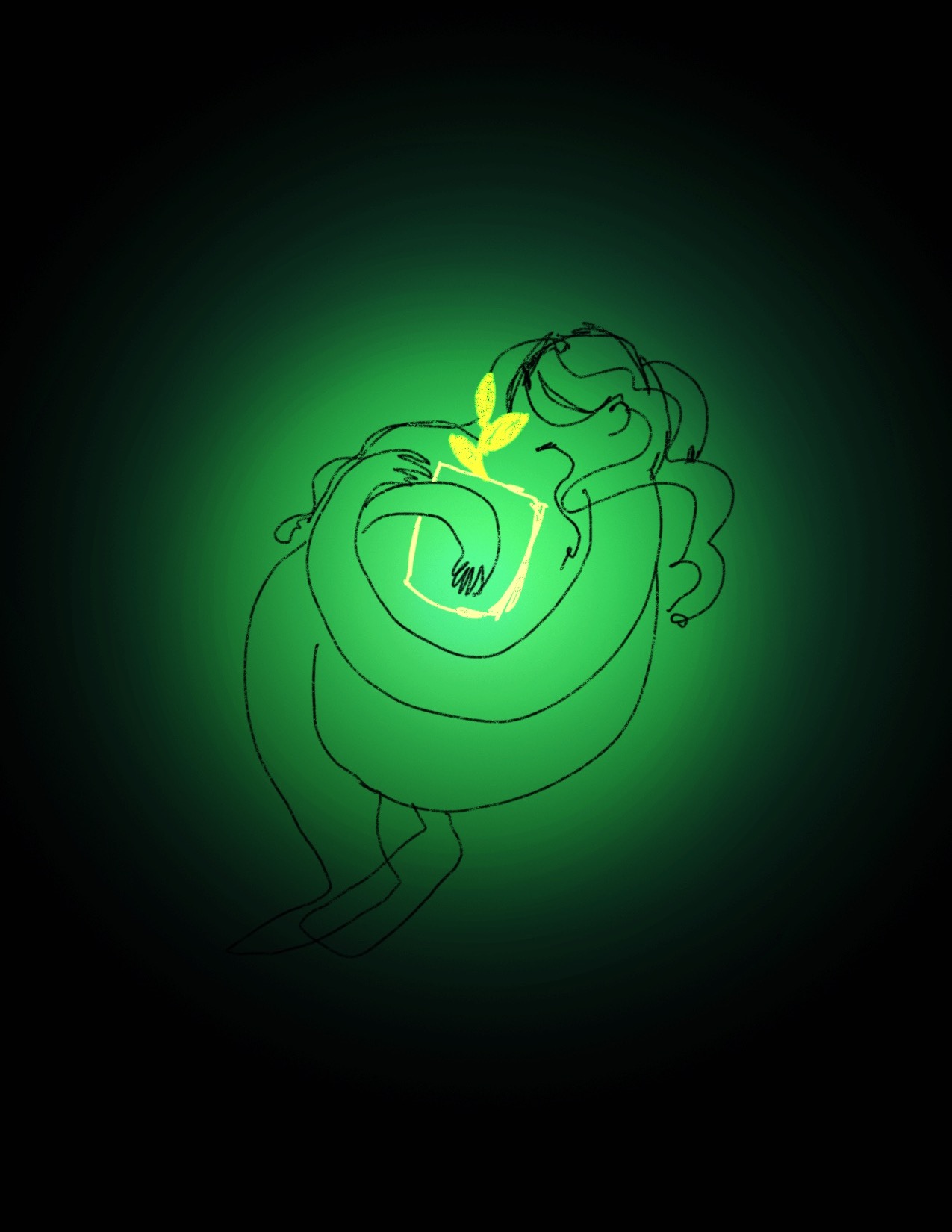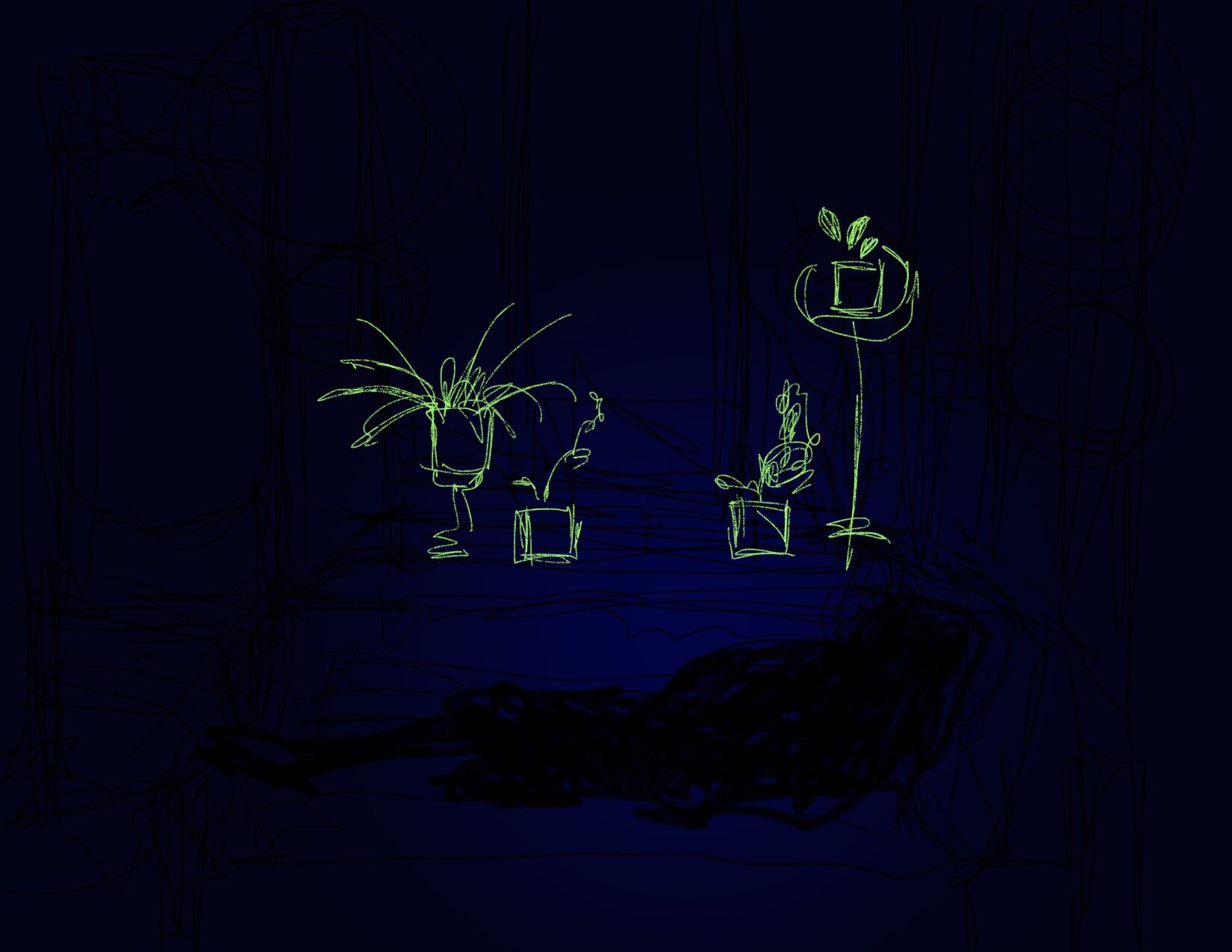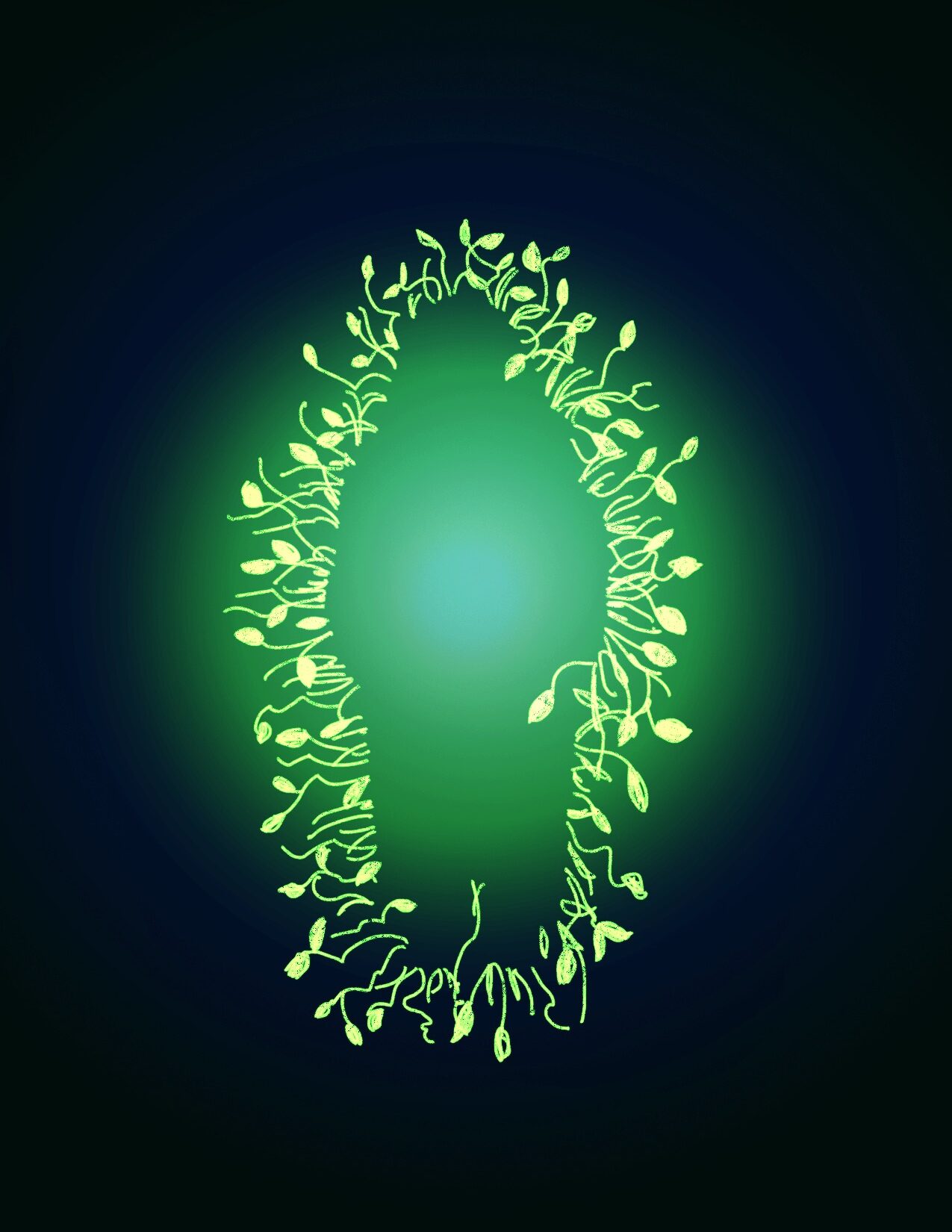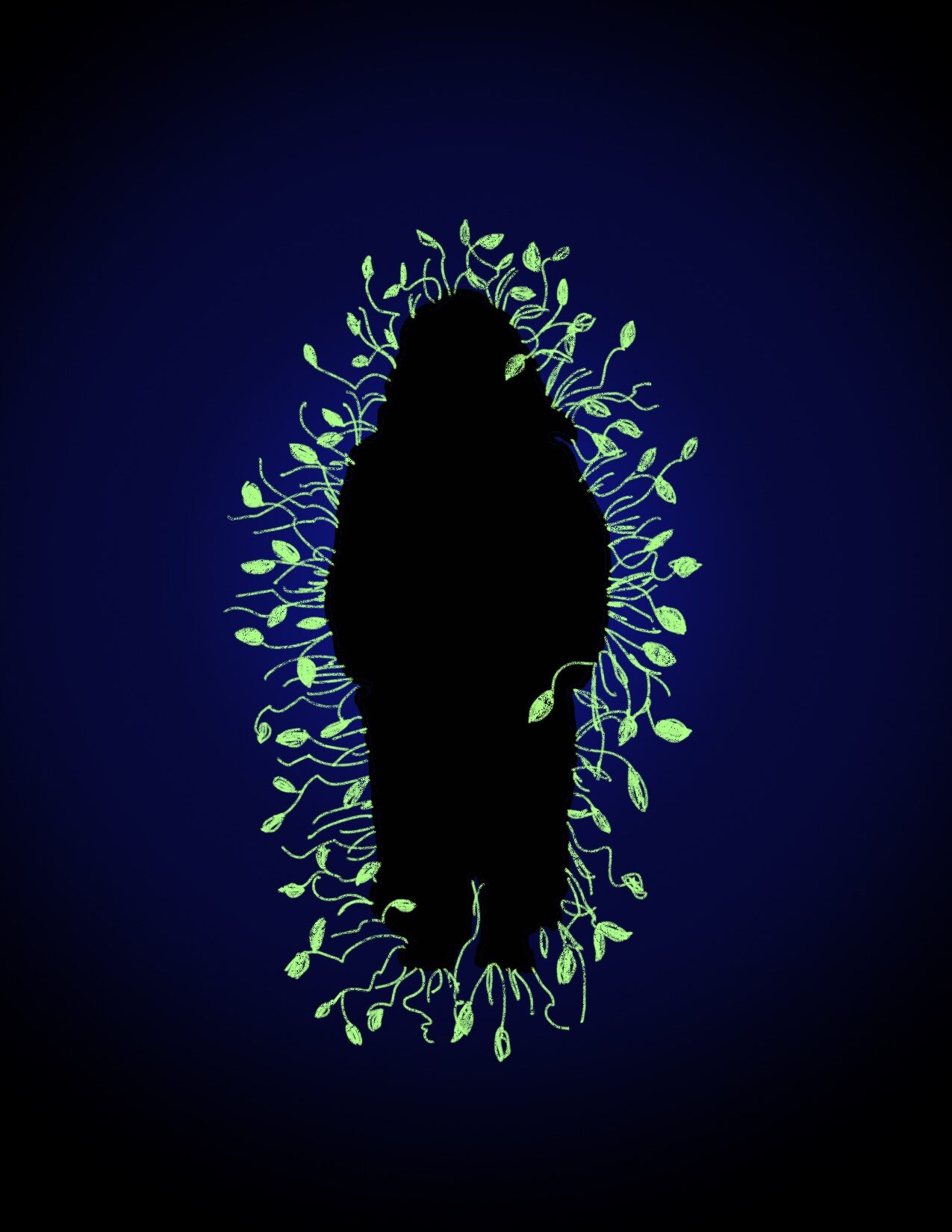By Maria Bregman, writer, art-critic, curator, and cultural producer. She has authored critical articles for publications such as Cosmopolitan, Glamour, ELLE and Esquire, and curated art exhibitions, including Zurab Tsereteli’s solo exhibitions. As a presenter for CultFM and creator of a cultural project for Culture TV, she has broadened public engagement with the arts. Maria’s achievements include organising international art festivals in the UK, Tunisia, Israel, serving on the jury for the Vasily Kandinsky Art Award
In an age that screams for attention, the most profound art is often found in the quietest gestures. It resides not in the bombast of the monumental, but in the fragile, determined sprouting of a leaf from a crack in a common kitchen pot. I will tell you about the startling, deeply moving work of Sofia Segalla, whose latest artistic project, Birch Roses – Rosa Beresa, is a silent but extraordinarily eloquent meditation on the private war between anxiety and resilience. This is not gentle art. It is an act of quiet defiance, a transformation of domestic mundanity into a series of potent talismans against the chaos of the inner world.
Segalla’s collection is a landscape of profound contradictions. It is rooted in the home, the supposed sanctuary of comfort and safety, yet it speaks a universal language of displacement and emotional turbulence. Through a delicate alchemy of clay, botanical life, and personal symbolism, she explores the architecture of a troubled mind and the almost impossibly stubborn nature of hope. Her work is a dialogue between the will to live and the fractures that threaten to undo us, a visual poem that finds its power not in perfection, but in the tenacious beauty of broken things.


The kitchen is the heart of Segalla’s world. But this is not the sanitised, aspirational kitchen of lifestyle magazines. It is a psychological space, a laboratory for the soul. Her primary objects are cooking pots-humble, utilitarian vessels that she fills with thriving, vibrant plants. She calls this her “impossible hope.” For an artist grappling with a sense of detachment and mental fragility, the simple, radical act of nurturing another living thing becomes both a literal and metaphorical anchor. To sustain life in a pot, to encourage roots to take hold and stems to reach for the light, is a direct contradiction to the entropy of despair.
These are not mere decorations. They are what Segalla refers to as her domestic talismans. In psychology, a defence mechanism is a strategy to protect the self from anxiety. Segalla’s art externalises this process. She elevates these everyday objects into psychic shields, their solid, earthy presence a grounding force against emotional tempests. She transforms the site of domestic labour into a place of profound personal agency, where the act of tending a plant becomes a ritual of self-preservation. It is a quiet, powerful reclamation of the home as a place where one can actively fight back against the unravelling.


Botany is the primary syntax of Birch Roses – Rosa Beresa. Roots, sprouts, and flourishing leaves are deployed with deep symbolic weight. Of course, plants have always symbolised life and vitality, but Segalla complicates this easy reading. Her hope is a “fragile, but stubborn” thing, and her plants reflect this. They are not perfect specimens in pristine containers. They erupt from cracked vessels, their roots navigating fissures in the clay, their leaves sometimes delicate to the point of transparency. This juxtaposition is the emotional engine of the work. It is a visual representation of life persisting, even flourishing, in imperfect, damaged environments.
The artist’s own confession-that she was once incapable of keeping a plant alive-infuses this journey with a rich, triumphant pathos. The power of art for her is an acquired skill, a victory over the past self. She describes this process as “the miracle of birth,” and through this lens, her artistic ideas are simple aesthetics. It becomes a profound meditation on healing, patience, and the slow, deliberate work of recovery. Every new leaf for an artist is a small victory, evidence of the possibility of growth.
Segalla’s work finds its most vivid expression in the idea of brokenness. The cracked pots and fractured clay forms are not flaws to be repaired or disguised. They are essential. They are the truth of the condition she explores. This aesthetic choice resonates with the Japanese art of kintsugi, where broken pottery is mended with gold lacquer, celebrating the object’s history and imperfections. But Segalla takes this philosophy a step further. She does not mend the breaks; she allows life to emerge from them. The crack is not an endpoint, but a beginning-an opening through which hope can find purchase.
This duality defines her artistic ethos. She accepts brokenness as a necessary state, a precondition for the emergence of something new and beautiful. By layering organic materials with deeply personal symbolism, her work achieves an ethereal yet profoundly earthed quality. The earthy tones, the rough textures of the clay, the delicate fragility of the plants-they invite a tactile, sensory exploration of her emotional landscape. We are not just looking at symbols of a feeling; we are feeling the texture of the struggle itself.
Segalla’s art enters into a rich dialogue with the history of women’s domestic art, a tradition that has long explored themes of labour, memory, and identity through the materials of the everyday. She powerfully reframes this tradition, infusing it with a contemporary urgency that speaks directly to modern experiences of mental health and emotional disconnection. Her focus is less on a political critique of domesticity and more on a psychological reclamation of it. The kitchen is not a prison; it is a studio, a sanctuary, a place of power.



By transforming humble objects into symbols of endurance, she pays tribute to the quiet, often invisible, strength inherent in the domestic sphere. The slow, deliberate processes she employs-nurturing plants, shaping clay, layering textures-stand as a direct counterpoint to the frenetic, overwhelming pace of contemporary life. Her art is a meditation on patience. It is a celebration of the small, incremental victories that constitute a life. It is a call to be present, to find the miraculous in the mundane.
Birch Roses – Rosa Beresa is an invitation to sit with the choice between anxiety and hope. Sofia Segalla has achieved something extraordinary. She has transformed a deeply personal struggle into a universal narrative of endurance and renewal. The fragility of her objects reflects the vulnerability of hope itself. Yet in this very fragility we find an unyielding strength. Through her sensitive and intelligent use of symbolism, materials, and botanical motifs, she has orchestrated a compelling, silent dialogue between brokenness and growth – a dialogue that resonates long after you have left her quiet, beautiful, and deeply moving world.







